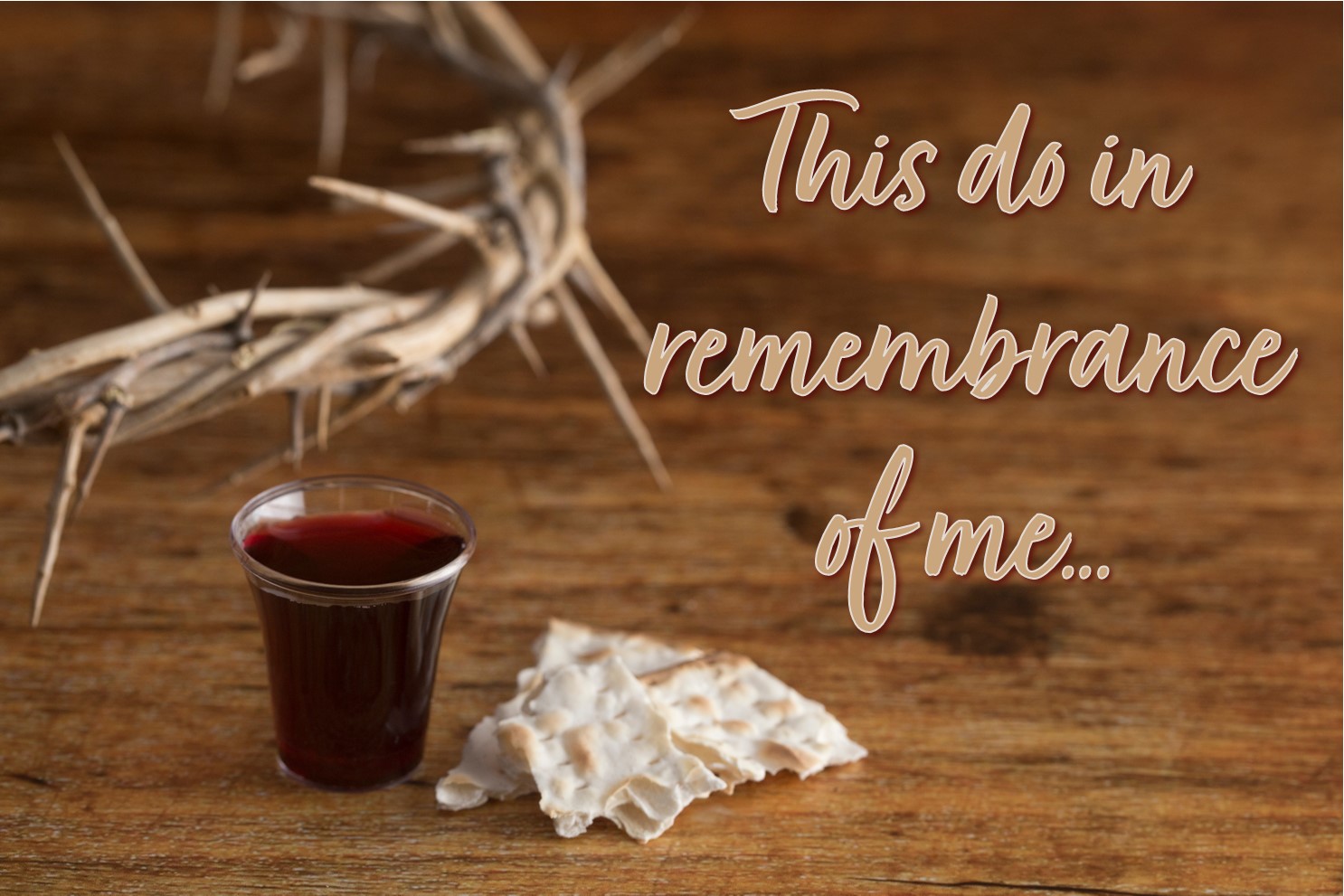
And it shall come to pass, when your children shall say unto you, What mean ye by this service? That ye shall say, It is the sacrifice of the LORD’S passover… (Exodus 12:26-27a)
For over four hundred years they had been in bondage in Egypt. Finally, tonight was the night that God would deliver them. They had obeyed the instructions that God had given them through Moses; they had killed the lamb and put its blood on their doors. Now they sat eating their unleavened bread waiting for word that it was time to go.
At midnight, a great cry began to rise throughout Egypt, from every home, even from the very throne room of Pharaoh—the firstborn in every house were dead. God had finally broken them.
Pharaoh called for Moses and Aaron and told them the leave, to take all the Israelites, their possessions, everything, and go. The Egyptians urged them to leave quickly; they could take whatever they wanted as long as they hurried to leave.
God had kept His promise and delivered His people.
God also instituted a very important feast for His people to observe as an ordinance forever: the Feast of Unleavened Bread, known more commonly as Passover because God had seen the blood on their doors and passed over their houses.
And this day shall be unto you for a memorial; and ye shall keep it a feast to the LORD throughout your generations; ye shall keep it a feast by an ordinance for ever. (Exodus 12:14)
And ye shall observe this thing for an ordinance to thee and to thy sons for ever. (Exodus 12:24)
The Israelites obeyed God’s command and, in fact, still observe Passover to this day.
Now, fast forward several hundred years to the time of Jesus’ earthly ministry. Jesus and His disciples are in Jerusalem for it is, once again, time to observe Passover. However, this time would be different. The disciples did not yet know, but that very night, Jesus would be arrested and sentenced to be crucified. But first, Jesus had something very important that He wanted to teach them—the true meaning of the Passover.
This historical event known as the Last Supper is when Christ instituted the ordinance of the Lord’s Supper to the church. Yet what do the elements of the “bread” and the “cup” mean? Jesus was a master teacher and often used everyday items to teach great principles. As expected, He simply and profoundly taught us exactly what we need to know about the elements of the Lord’s Supper:
The Unleavened Bread: The Body of Christ
And as they were eating, Jesus took bread, and blessed it, and brake it, and gave it to the disciples, and said, Take, eat; this is my body. (Matthew 26:26)
And as they did eat, Jesus took bread, and blessed, and brake it, and gave to them, and said, Take, eat: this is my body. (Mark 14:22)
And he took bread, and gave thanks, and brake it, and gave unto them, saying, This is my body which is given for you: this do in remembrance of me. (Luke 22:19)
For I have received of the Lord that which also I delivered unto you, That the Lord Jesus the same night in which he was betrayed took bread: And when he had given thanks, he brake it, and said, Take, eat: this is my body, which is broken for you: this do in remembrance of me. (1 Corinthians 11:23-24)
The above verses sum up the meaning of the bread succinctly. Jesus’ body was broken and offered up for us. Here, the message of the bread is one of us being set free from our sin through Christ’s death on the cross. Christ allowed His body to be beaten and broken for us so that we could be made whole; He died so that we could live.
Who his own self bare our sins in his own body on the tree, that we, being dead to sins, should live unto righteousness: by whose stripes ye were healed. (1 Peter 2:24)
What is the significance of unleavened bread?
Your glorying is not good. Know ye not that a little leaven leaveneth the whole lump? Purge out therefore the old leaven, that ye may be a new lump, as ye are unleavened. For even Christ our passover is sacrificed for us: Therefore let us keep the feast, not with old leaven, neither with the leaven of malice and wickedness; but with the unleavened bread of sincerity and truth. (1 Corinthians 5:6-8)
The word leaven in these verses means “moral corruption,” meaning sin. Leaven is often a picture of sin or worldliness in the Bible. If the bread of the Lord’s Supper is to be a picture of the body of Christ, then it cannot have leaven in it because our Saviour is without sin. He is pure and perfect as only the Son of God can be. We are commanded to purge “leaven” from our hearts and lives so that we can be more like Christ.
The Cup: The Blood of Christ
And he took the cup, and gave thanks, and gave it to them, saying, Drink ye all of it; For this is my blood of the new testament, which is shed for many for the remission of sins. (Matthew 26:27-28)
And he took the cup, and when he had given thanks, he gave it to them: and they all drank of it. And he said unto them, This is my blood of the new testament, which is shed for many. (Mark 14:23-24)
Likewise also the cup after supper, saying, This cup is the new testament in my blood, which is shed for you. (Luke 22:20)
After the same manner also he took the cup, when he had supped, saying, This cup is the new testament in my blood: this do ye, as oft as ye drink it, in remembrance of me. (1 Corinthians 11:25)
From the verses above, we can easily understand that the cup stands for the pure blood of Christ, shed for the forgiveness of our sins. What relief and peace we have in understanding that God has forgiven our sins! Apart from Christ, we stand guilty and deserve to pay the penalty for our sins; we deserve to go to hell, a place of eternal punishment. Jesus took our place and Himself paid the penalty for our sins.
In whom we have redemption through his blood, even the forgiveness of sins: (Colossians 1:14)
In whom we have redemption through his blood, the forgiveness of sins, according to the riches of his grace; (Ephesians 1:7)
We see from the verses above (and many others throughout Scripture) that Jesus won our redemption, the forgiveness of our sins, through His perfect shed blood. The cup of the Lord’s supper stands for this message of the cross. The purpose of forgiveness of sins is that we can have a relationship with Christ and receive eternal life. The cup, which stands for forgiveness and redemption, also has an alternate meaning: The resurrection message of the blood is life, eternal life, or abundant life. The full meaning of the cup, simply stated, is deliverance from death into life.
What is the significance of the fruit of the vine?
But I say unto you, I will not drink henceforth of this fruit of the vine, until that day when I drink it new with you in my Father’s kingdom. (Matthew 26:29)
Verily I say unto you, I will drink no more of the fruit of the vine, until that day that I drink it new in the kingdom of God. (Mark 14:25)
For I say unto you, I will not drink of the fruit of the vine, until the kingdom of God shall come. (Luke 22:18)
The verses above are the completion of the statements that Jesus began in the verses included in the previous section. It is important to note that in each account of the Lord’s Supper Jesus refers to what is in the cup as “fruit of the vine”; neither He nor His disciples ever mention “wine.” Why would this be the case?
Wine is made through a process of fermentation. This process of fermentation in winemaking turns grape juice into an alcoholic beverage. During fermentation, yeasts transform sugars present in the juice into ethanol (a type of alcohol). In essence, fermentation is the breaking down of a fresh, pure product into a lower, impure substance; it is a sign of corruption and decay.
Based on the description above, does it sound as if that could be a picture of the pure, sinless blood of Jesus Christ? Certainly, not! How could Christ’s blood wash away our sin and corruption if it is corrupt itself? The cup of the Lord’s Supper is a pure grape juice to properly represent our Saviour’s blood. 1 John 1:7 says, “…the blood of Jesus Christ [God’s] Son cleanseth us from all sin.” It is impossible for something corrupt and impure to cleanse anything.
In Conclusion…
For as often as ye eat this bread, and drink this cup, ye do shew the Lord’s death till he come. (1 Corinthians 11:26)
Jesus did not give any stipulations on when or how often we are to partake of the Lord’s Supper; He did, however, give us one directive for when we do observe: “…this do in remembrance of me (Luke 22:19b).” Whenever we partake of the Lord’s Supper, we are doing it in remembrance of what Christ did for us. The broken bread represents His body, broken for us. The cup represents His blood, shed so that we could be justified and redeemed. May we never forget Christ’s great sacrifice. May we never partake of the Lord’s Supper unworthily. We must heed God’s warning and prepare ourselves:
Wherefore whosoever shall eat this bread, and drink this cup of the Lord, unworthily, shall be guilty of the body and blood of the Lord. But let a man examine himself, and so let him eat of that bread, and drink of that cup. For he that eateth and drinketh unworthily, eateth and drinketh damnation to himself, not discerning the Lord’s body. For this cause many are weak and sickly among you, and many sleep. For if we would judge ourselves, we should not be judged. But when we are judged, we are chastened of the Lord, that we should not be condemned with the world. (1 Corinthians 11:27-32)
Click here to read from God’s Word the account of Passover’s first institution by God.
For a more in depth study of the word passover in the Bible, click here.
If you’d like to read what we believe in regards to the Lord’s Supper, please click here to read our statement of faith.
